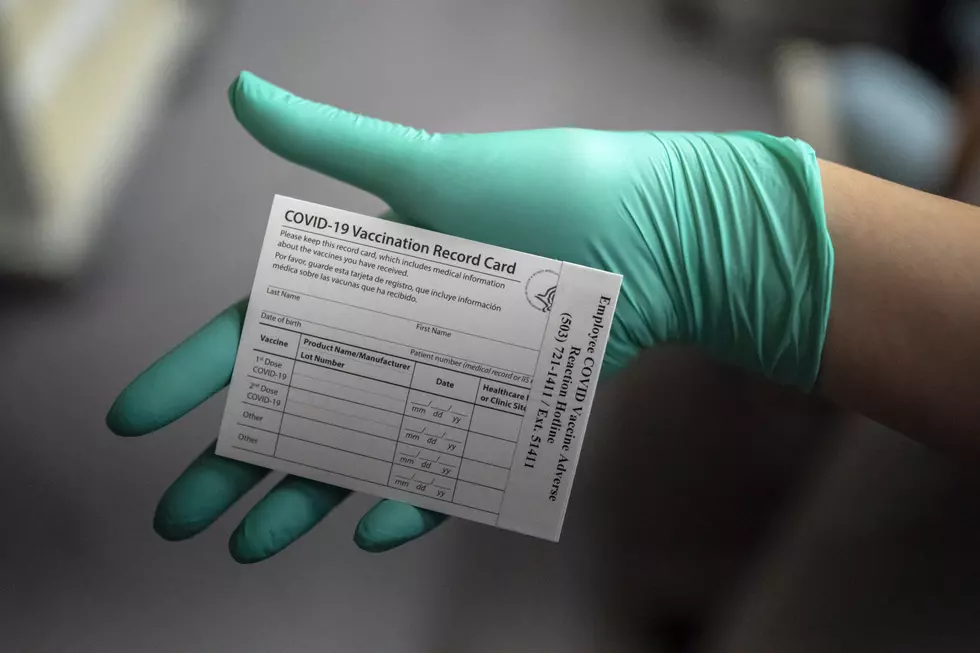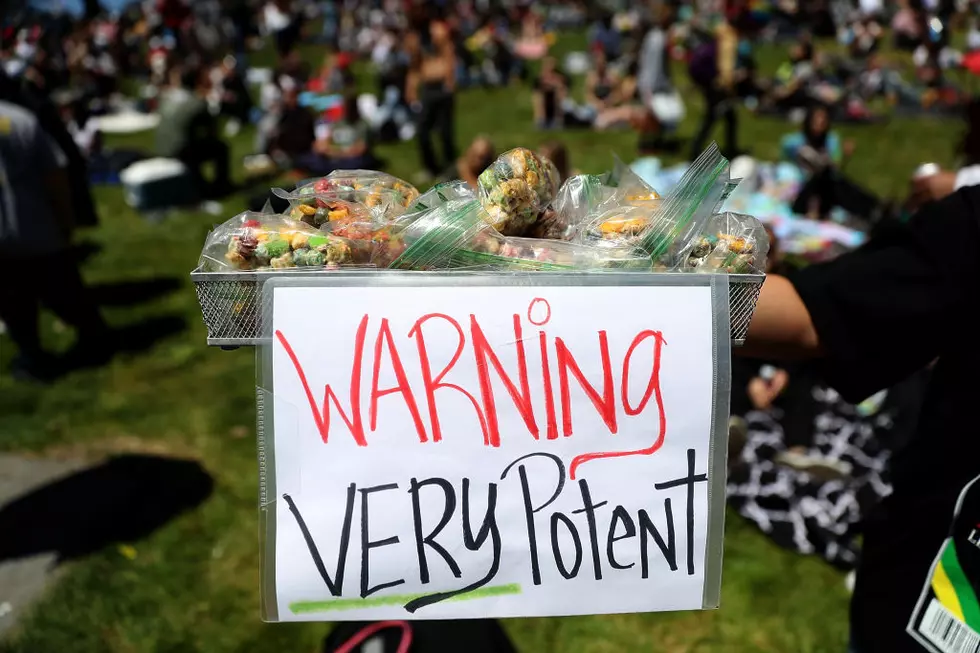
Stop Posting Photos of Your COVID-19 Vaccine Card, BBB Warns
The Better Business Bureau has issued a warning regarding posting a photo of your COVID-19 vaccination card.
Many are making the analogy that it's sort of like posting a photo of your "I Voted" sticker after an election, but it does provide a bit more private information than that.
We know many in Central New York who have done this, and it's definitely not a good idea.

"Unfortunately, your card has your full name and birthday on it, as well as information about where you got your vaccine.," the BBB said in a news release. "If your social media privacy settings aren't set high, you may be giving valuable information away for anyone to use."
They also warned of a stunt going around, where some may use the information on your card in creating a new, fake one for use.
Scammers in Great Britain were caught selling fake vaccination cards on eBay and TikTok and the BBB knows it could happen soon in the United States and Canada.
Posting photos of your card can help provide scammers with information they can use to create and sell phony ones.
Be smart before you post things - it could come back and cause serious consequences later. Even if the intentions were good.
Along with the warning, the BBB gave some tips about sharing safely on social media:
- Share your vaccine sticker or use a profile frame instead. If you want to post about your vaccine, there are safer ways to do it. You can share a photo of your vaccine sticker or set a frame around your profile picture.
- Review your security settings.Check your security settings on all social media platforms to see what you are sharing and with whom. If you only want friends and family to see your posts, be sure that’s how your privacy settings are configured.
- Be wary of answering popular social media prompts. Sharing your vaccine photo is just the latest social trend. Think twice before participating in other viral personal posts, such as listing all the cars you’ve owned (including makes/model years), favorite songs, and top 10 TV shows. Some of these “favorite things” are commonly used passwords or security questions.
KEEP READING: These are the top 6 scams connected to the pandemic
More From Big Frog 104









